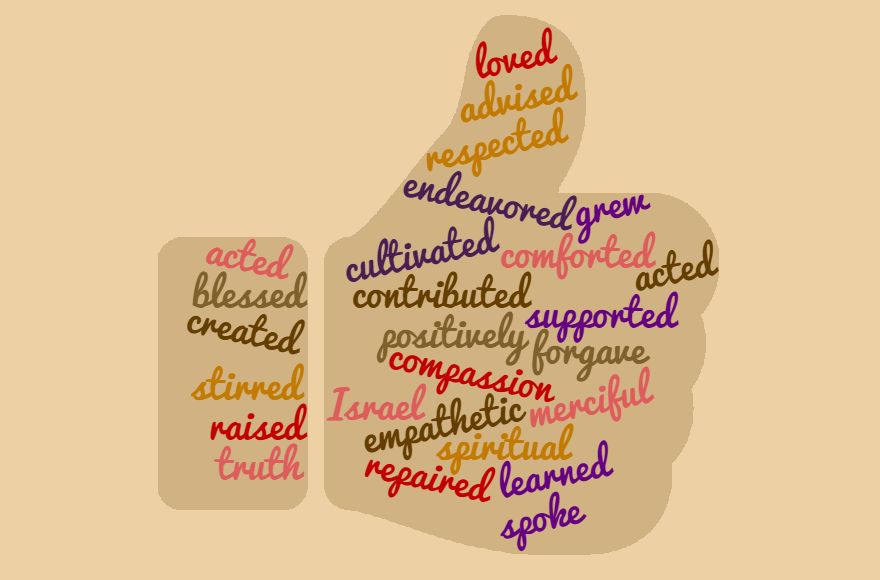Yom Kippur is a time for confession, as Jews flock to synagogues to recite their sins in a lengthy litany known as the “Viduy.” Striking their hearts, the congregation chants: “we have trespassed, we have dealt treacherously, we have robbed, we have spoken slander….”
The goal of the ritual is to inspire the confessor to do better in the year to come. But what if the opposite is true? What if, as Rabbi Avi Weiss asks, all that confessing leads “to despair, to loss of confidence, even to loss of belief in one’s capacity to do good”?
Weiss, the founding rabbi of the Hebrew Institute of Riverdale, New York, has proposed an “opposite recitation” of the confession, this one focusing on the good things one has done. His inspiration is Rabbi Avraham Yitzchak HaCohen Kook, the first Ashkenazi chief rabbi of what became Israel, who once wrote that just as there is a confession for the bad, there should be a confession for the good.
“A person should also be joyous concerning the good he or she has done. It follows that just as there is a great benefit to self-improvement through confessing one’s sins, so is there great benefit to confessing one’s good deeds,” writes Weiss.
Below is Rabbi Weiss’ “opposite” confessional, which he shared with members of the Hebrew Institute on Oct. 1:
אָהַבְנוּ, בֵּרַכְנוּ, גָּדַלְנוּ, דִִִּבַּרְנוּ יֹפִי
We have loved, we have blessed, we have grown, we have spoken positively.
הֶעֱלִינוּ, וְחַסְנוּ, זֵרַזְנוּ
We have raised up, we have shown compassion, we have acted enthusiastically,
חָמַלְנוּ, טִפַּחְנוּ אֱמֶת
We have been empathetic, we have cultivated truth,
יָעַצְנוּ טוֹב, כִּבַּדְנוּ, לָמַדְנוּ, מָחַלְנוּ
We have given good advice, we have respected, we have learned, we have forgiven,
נִחַמְנוּ, סָלַלְנוּ, עוֹרַרְנוּ
We have comforted, we have been creative, we have stirred,
פָּעַלְנוּ, צָדַקְנוּ, קִוִּינוּ לָאָרֶץ
We have been spiritual activists, we have been just, we have longed for Israel,
רִחַמְנוּ, שָקַדְנוּ
We have been merciful, we have given full effort,
תָּמַכְנוּ, תָּרַמְנוּ, תִּקַּנּוּ
We have supported, we have contributed, we have repaired.

Help ensure Jewish news remains accessible to all. Your donation to the Jewish Telegraphic Agency powers the trusted journalism that has connected Jewish communities worldwide for more than 100 years. With your help, JTA can continue to deliver vital news and insights. Donate today.






